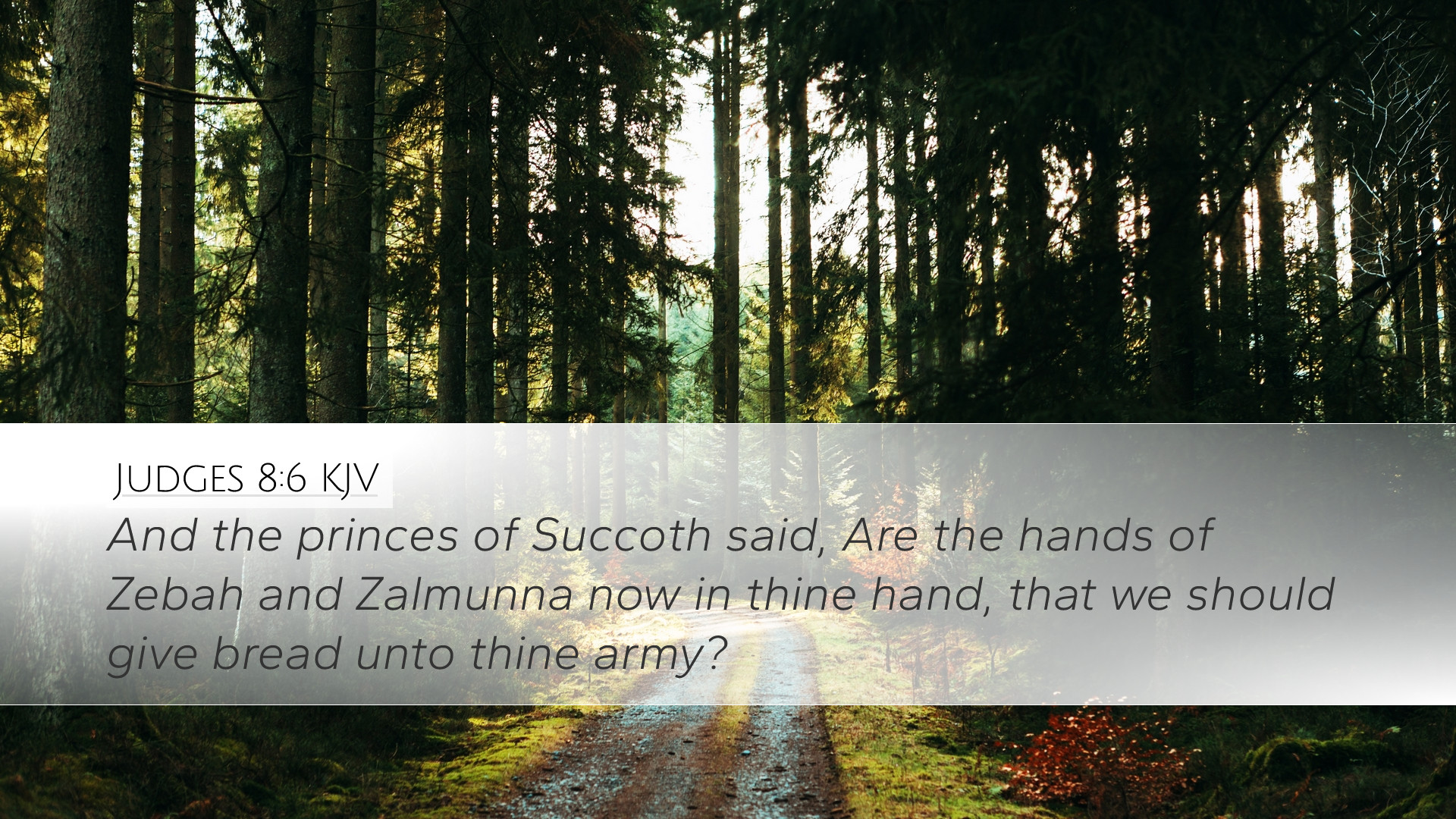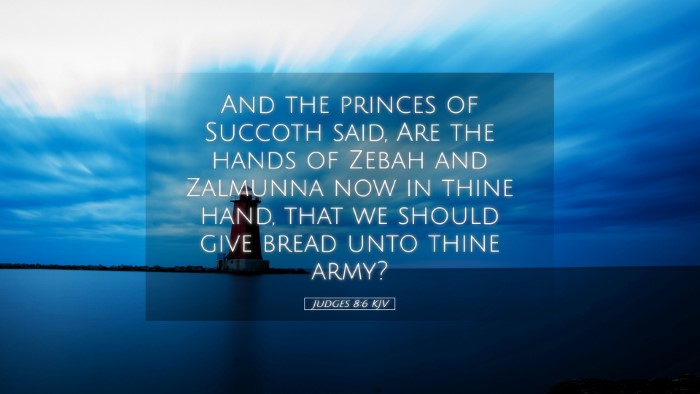Old Testament
Genesis Exodus Leviticus Numbers Deuteronomy Joshua Judges Ruth 1 Samuel 2 Samuel 1 Kings 2 Kings 1 Chronicles 2 Chronicles Ezra Nehemiah Esther Job Psalms Proverbs Ecclesiastes Song of Solomon Isaiah Jeremiah Lamentations Ezekiel Daniel Hosea Joel Amos Obadiah Jonah Micah Nahum Habakkuk Zephaniah Haggai Zechariah MalachiVerse
Judges 8:1 Judges 8:2 Judges 8:3 Judges 8:4 Judges 8:5 Judges 8:6 Judges 8:7 Judges 8:8 Judges 8:9 Judges 8:10 Judges 8:11 Judges 8:12 Judges 8:13 Judges 8:14 Judges 8:15 Judges 8:16 Judges 8:17 Judges 8:18 Judges 8:19 Judges 8:20 Judges 8:21 Judges 8:22 Judges 8:23 Judges 8:24 Judges 8:25 Judges 8:26 Judges 8:27 Judges 8:28 Judges 8:29 Judges 8:30 Judges 8:31 Judges 8:32 Judges 8:33 Judges 8:34 Judges 8:35

